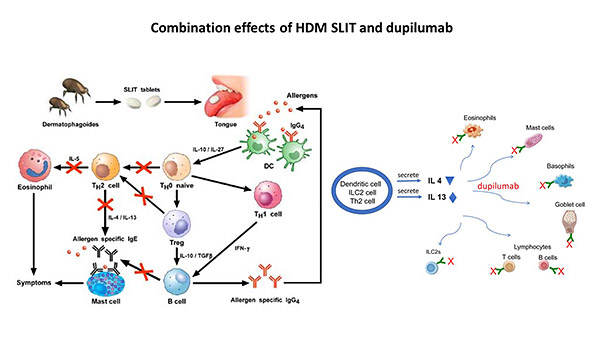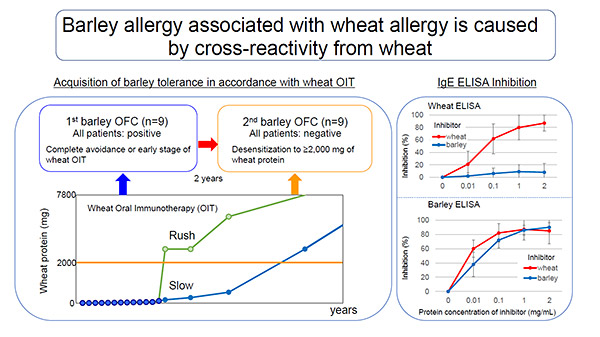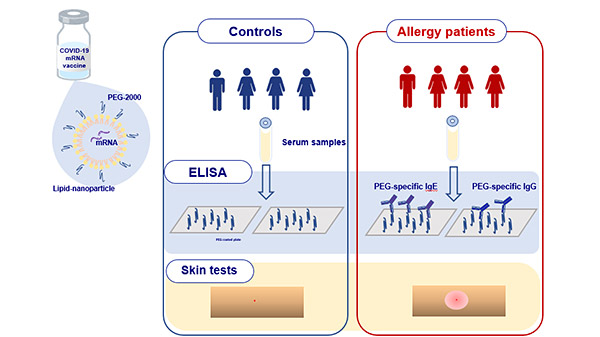Volume 71, Issue 4 (October 2022)
Editor's Choices
Editor’s comment: Sublingual immune therapy (SLIT) is a representative disease-modifying treatment for allergic diseases. Hoshino et al. evaluated the outcomes of initiating house dust mite (HDM) SLIT in patients with both asthma and rhinitis whose disease activity was not optimally controlled with dupilumab. They found that the combination therapy of HDM SLIT and dupilumab improved asthma control, increased lung function, and reduced FeNO and wall thickness, suggesting that adding HDM SLIT is beneficial for patients treated with dupilumab.
Editor’s comment: Some patients with wheat allergy show clinical cross-reactivity to barley. Kubota et al. examined the clinical cross-reactivity and immunological cross-antigenicity of wheat and barley in patients with wheat allergy to address whether the development of barley allergy in these patients is due to cross-antigenicity between wheat and barley. They found that nine patients who had positive results for oral food challenge (OFC) for barley all became negative on barley-OFC after oral immunotherapy (OIT) for wheat. These findings suggest that barley allergy associated with wheat allergy is caused by cross-reactivity from wheat and that the OIT for wheat is a promising option for barley allergy.
Editor’s comment: Some people develop allergic reactions to COVID-19 mRNA vaccines. Polyethylene glycol (PEG) is a potential antigen of these vaccines. Mouri et al. investigated serum PEG-specific IgE/IgG and polysorbate (PS)-specific IgE/IgG in patients who developed immediate allergic reactions to BNT162b2 (Pfizer-BioNTech) or mRNA-1273 (Moderna) and in some patients, performed skin tests using PEG-2000 and PS-80. They found that PEG is one of the antigens in the allergy to COVID-19 mRNA vaccines and that cross-reactivity between PEG and PS might be involved in allergy to these vaccines, suggesting that PEG-specific IgE and IgG may help predict allergy to these COVID-19 vaccines.





